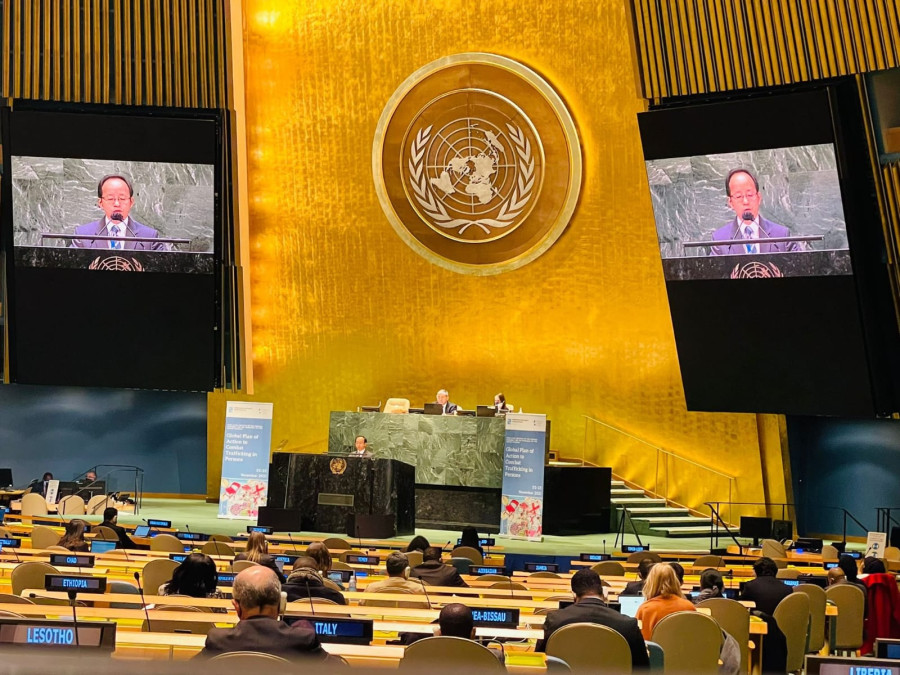Editorial
Development paradox
Can we rise up to the challenge of being classed as a developing country?
On November 24, the UN General Assembly adopted a historic resolution to graduate Nepal, Bangladesh and the Lao People’s Democratic Republic from the least developed country (LDC) category to the developing country category after a preparatory period of five years. Nepal has been seeking to elevate its status from being classified as least developed to developing, but not everything is as it seems. And it is seemingly so in the case of Nepal too. The devastating impact of the earthquake in 2015 and the current stranglehold of Covid-19 has rendered all efforts to improve economic indicators futile.
It is one thing that successive governments have been pushing to include Nepal into the developing category. But when you look at a situation through rose-tinted glasses, it’s only possible to view half the story, and usually, that half is unrealistic and unreflective of the ground reality. The fulfilment of two of the three criteria, namely, the human asset index and the economic and environmental vulnerability index, facilitated this upward movement. Nepal has, however, failed in the gross national income requirement, which is indicative of the wealth that a nation earns on a year-to-year basis.
What is paradoxical about this seemingly benign promotion to a developing category is that Nepal would lose various incentives provided to a country belonging to the LDC class. Nepali products which enjoy duty-free and quota-free access to European markets would be lost, making our products less competitive to those of other developing nations such as India, China and Bangladesh. They have a proven track record of providing goods and services at virtually unmatched prices, even for countries with developed infrastructures. What chance does Nepal have in competing with them with its geographical limitations and unstable political scenario?
The politicians have no factual claims concerning eradicating poverty or any of the economic development indicators that have been touted as an accomplishment. It is largely due to the remittances sent by millions of Nepalis who were unable to find a stable source of employment in their home country and had to resort to securing one in a foreign land going through a lot of hardship and suffering. Had the authorities worked to protect business, people would have preferred working in their homeland. Profitable and competitive businesses like the garment industry, the carpet industry, and numerous other public and private enterprises have been decimated or left over the years to suffer a slow death due to negligence and largely the unfriendly business policies of the government.
As a country, we have even failed to capitalise on what is usually considered our strength—agricultural productivity. Instead, we have been forced to rely on imports mainly from India while our fruits and vegetables lie rotting. Such a myopic vision of the authorities has cost us, dear. So, what plan do the authorities have up their sleeves that have eluded us up till now? Or is this elevation another gimmick to hoodwink the public into believing that their efforts so far have been an astounding success? Can we rise up to the challenges of being classed as a developing country?




 20.9°C Kathmandu
20.9°C Kathmandu














